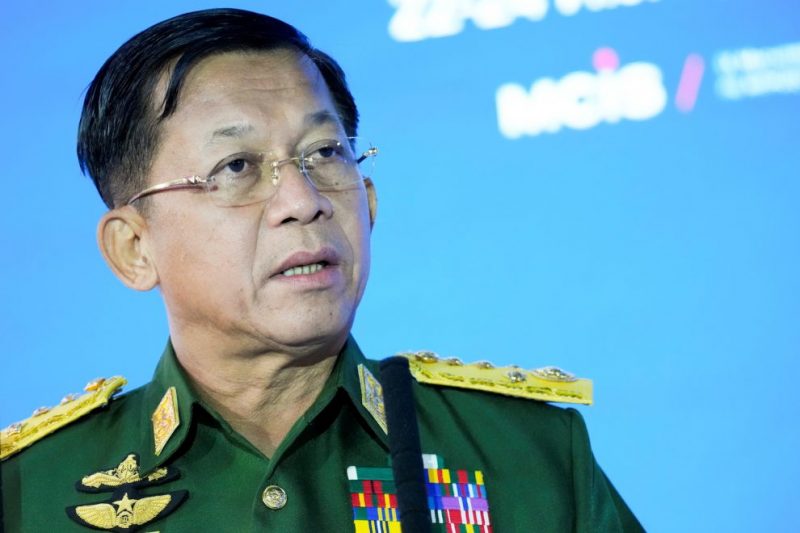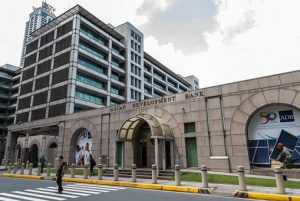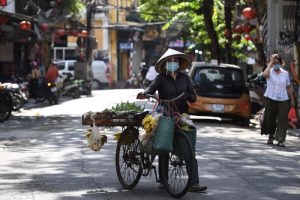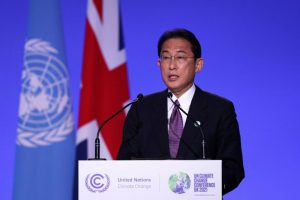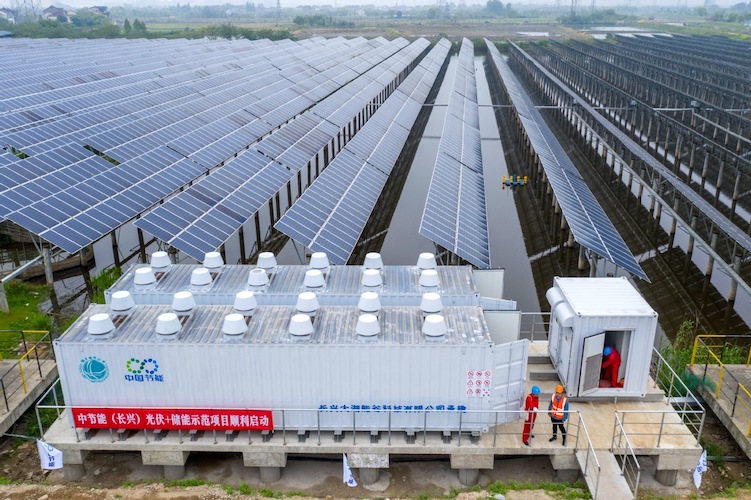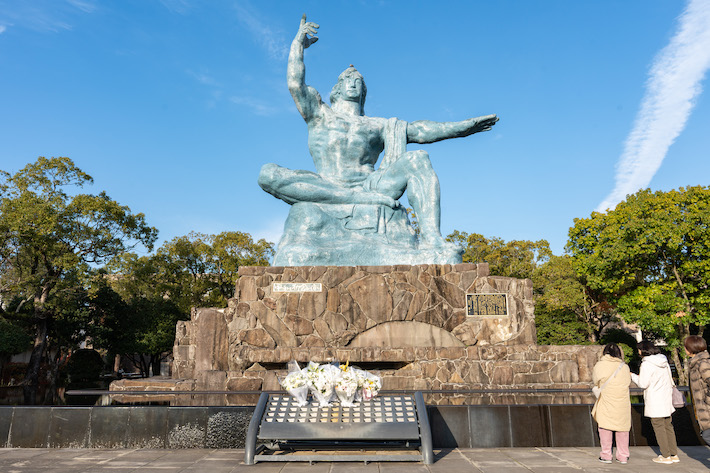Rights groups are ramping up their lobbying of Western governments to try to cut the “massive revenues” the Myanmar military collects from natural gas and other extractive sectors.
Human Rights Watch called on Tuesday for “new targeted sanctions to block foreign currency payments that support the junta’s abusive rule”.
The move follows news last Friday (January 21) that oil giants TotalEnergies and Chevron plan to leave Myanmar, and fears that natural gas revenue will continue to flow to the junta because other companies will take over their operations.
The group wants the United States, the European Union, United Kingdom, Japan, and other concerned governments to adopt a common position to impose sanctions on all natural gas revenues.
It has called for Thailand’s state-owned PTT and South Korea’s POSCO, the two main energy companies remaining in Myanmar, to signal their support for such measures.
“After nearly a year in power, Myanmar’s junta is continuing to commit horrific abuses without facing significant costs from the international community,” John Sifton, Asia advocacy director at Human Rights Watch, said.
“Junta leaders are not going to turn away from their brutality and oppression unless governments impose more significant financial pressure on them.”
Natural gas projects in Myanmar generate over US$1 billion in foreign revenue for the junta annually and are its single largest source of foreign currency revenue, HRW said.
Revenue transmitted in dollars
The money is transmitted in US dollars to the Myanmar Oil and Gas Enterprise (MOGE) and other military-controlled bank accounts in foreign countries (such as Singapore) in the form of fees, taxes, royalties, and revenues from the export of natural gas, it said, and most of this travels by pipeline to Thailand or China.
“The US and EU in particular are in key positions to impose sanctions since payments in the gas sector – even those handled by non-US and non-EU companies – are typically made in US dollars and involve correspondent US and EU banks, the group said.
“Sanctions by the US and EU can stop payments made in US dollars or Euros even by banks in Thailand, Singapore, South Korea, and other locations, since those banks always ultimately need correspondent US and EU banks – which are subject to US and EU law – to finalise, or ‘settle’ large dollar or Euro transactions.”
When TotalEnergies and Chevron depart Myanmar, the flow of funds to the junta will not be disrupted, the group said.
“TotalEnergies reported that it will continue operating the Yadana field and pipeline for six months according to existing agreements, which also stipulate that ‘in the event of withdrawal, TotalEnergies’ interests will be shared between the current partners, unless they object to such allocation, and that the role of operator will be taken over by one of the partners’.”
PTT, the remaining foreign project partner in Yadana, which currently holds 25.5% of the project, announced it was “considering potential directions of the Yadana project.”
“The largest gas revenues paid to junta-controlled accounts are made via PTT, which purchases approximately 80% of Myanmar’s exported natural gas from Yadana, as well as the Zawtika gas field, which it operates itself,” HRW said in its statement.
“In addition, PTT owns stakes in joint ventures with POSCO, which transports and sells gas to China. Human Rights Watch has previously written to all of these companies and their shareholders, urging them to support sanctions on gas revenues.
“Energy company departures from Myanmar will be only gestures so long as the junta keeps making money,” Sifton said. “The US and EU urgently need to impose measures that will have real economic impact on the junta, if there is to be any progress on human rights.”
Hun Sen Puts Conditions on Junta Chief’s Visit
Meanwhile, Cambodian strongman Hun Sen said he had invited Myanmar’s junta chief to a summit of the Association of Southeast Asian Nations (ASEAN), on the condition he makes progress on a peace plan he agreed to last year.
Hun Sen, the ASEAN chair, said he would talk to Min Aung Hlaing by video on Wednesday, noting that since their January 7 meeting in Myanmar, ousted leader Aung San Suu Kyi had been sentenced to four years’ detention and military aircraft had been deployed in operations.
Min Aung Hlaing led a coup in Myanmar last year and ASEAN made a surprise move in barring his junta from key meetings over its failure to honour a five-point ASEAN “consensus” that included ceasing hostilities and allowing dialogue.
The general is invited “if there was progress in the implementation of the five points agreed unanimously”, a statement on Hun Sen’s Facebook page said. “But if not, he must send a non-political representative to ASEAN meetings.”
The conditional invitation was issued just as the World Bank issued a Myanmar Economic Monitor report, projecting 1% growth in the year to September 30 after the economy plunged 18% during the previous 12 months.
The banks said conditions remain bleak amid escalating conflict and lingering threats of a Covid-19 resurgence.
ASEAN Credibility at Stake
As the new rotating chair of ASEAN, Cambodia has indicated it wants to engage not isolate the junta, but Hun Sen has been pressed by several ASEAN leaders, including those of Malaysia, Indonesia and Singapore, not to give way on the agreement.
The overthrow of Suu Kyi’s elected government in Myanmar has been a setback for the regional body and its efforts to present itself as a credible and integrated bloc.
Hun Sen’s Myanmar visit caused concern within the group that it could suggest ASEAN recognition of the generals, who have overseen a bloody crackdown on pro-democracy forces, with at least 1,500 killed, including dozens of civilians, children and many people slain after being taken into custody.
Fissures have been exposed over the Myanmar issue and Hun Sen last week took a swipe at Malaysia’s foreign minister, calling him arrogant for voicing concern about him meeting the junta chief.
The ASEAN consensus includes halting offensives and granting full access to a special ASEAN envoy to all parties in the conflict.
- Reuters, with additional editing by George Russell and Jim Pollard
READ MORE:
TotalEnergies, Chevron Myanmar Exit Won’t Hurt Junta: Analysts
Chevron to Exit Myanmar as TotalEnergies Backs Sanctions
Myanmar to Export 450-500 Tonnes of Coffee – New Light
Australian company kicks off operations at Cambodian gold mine




